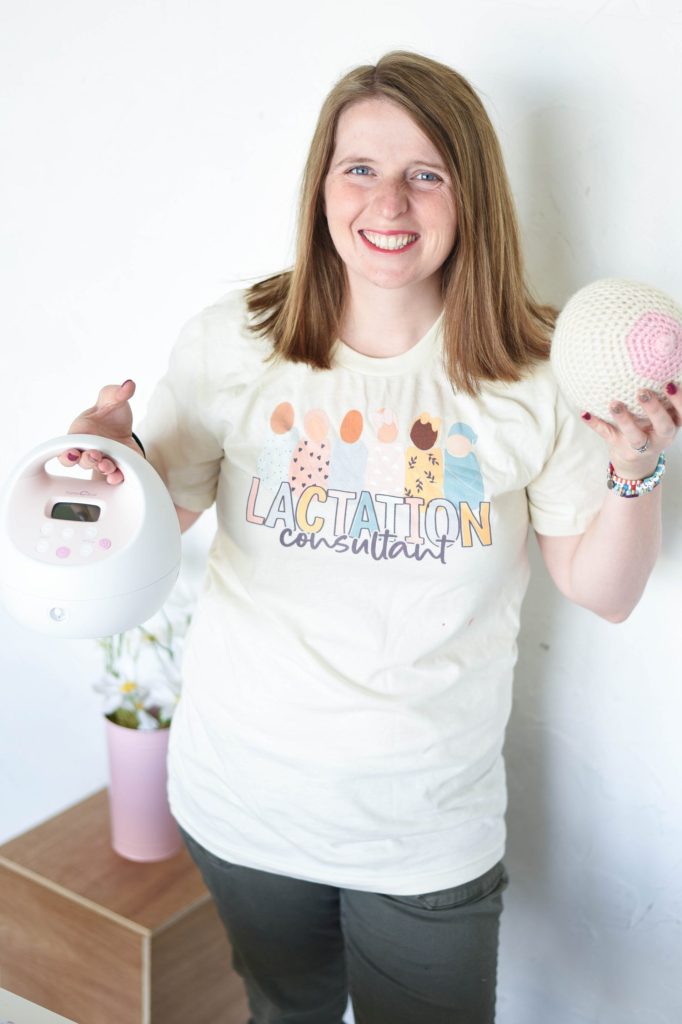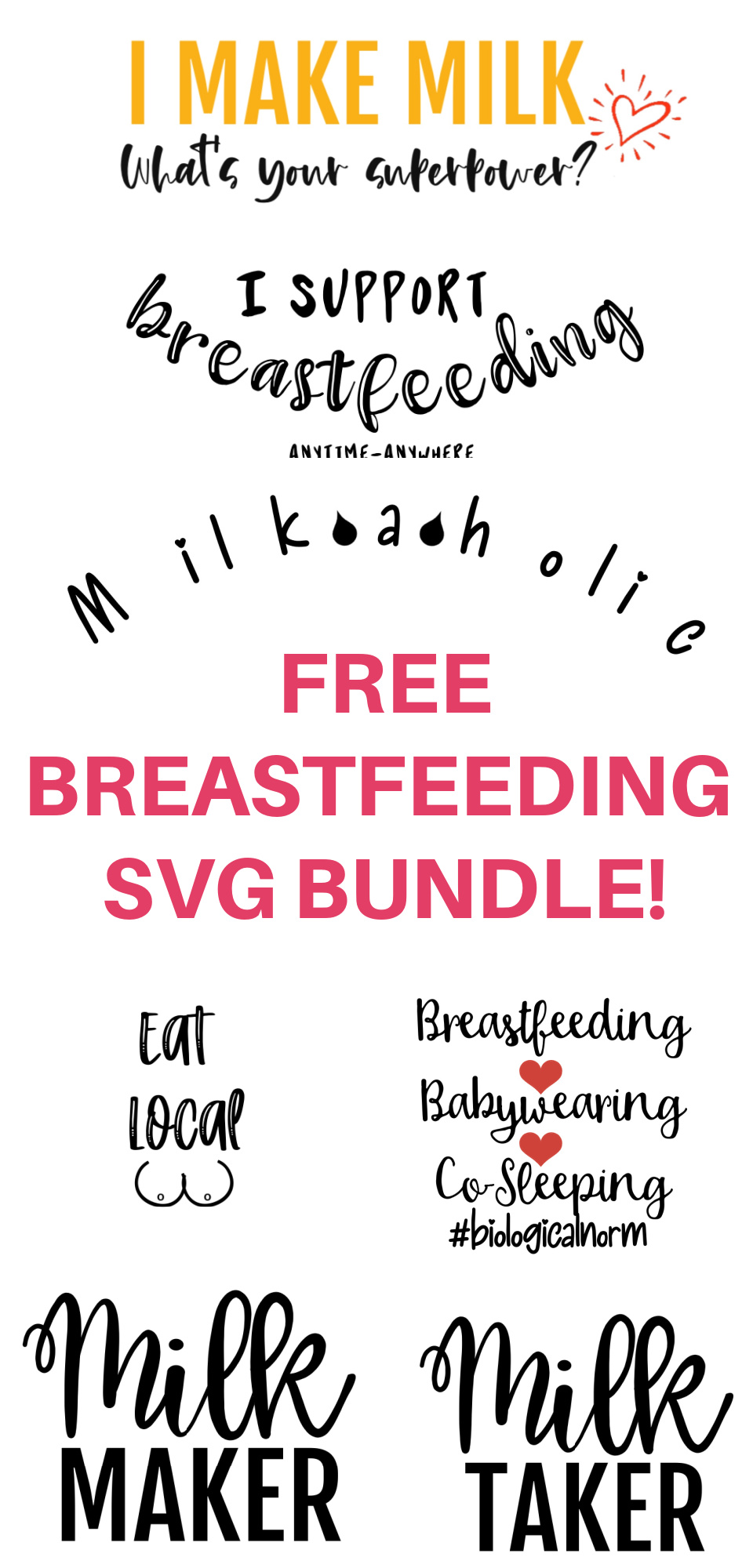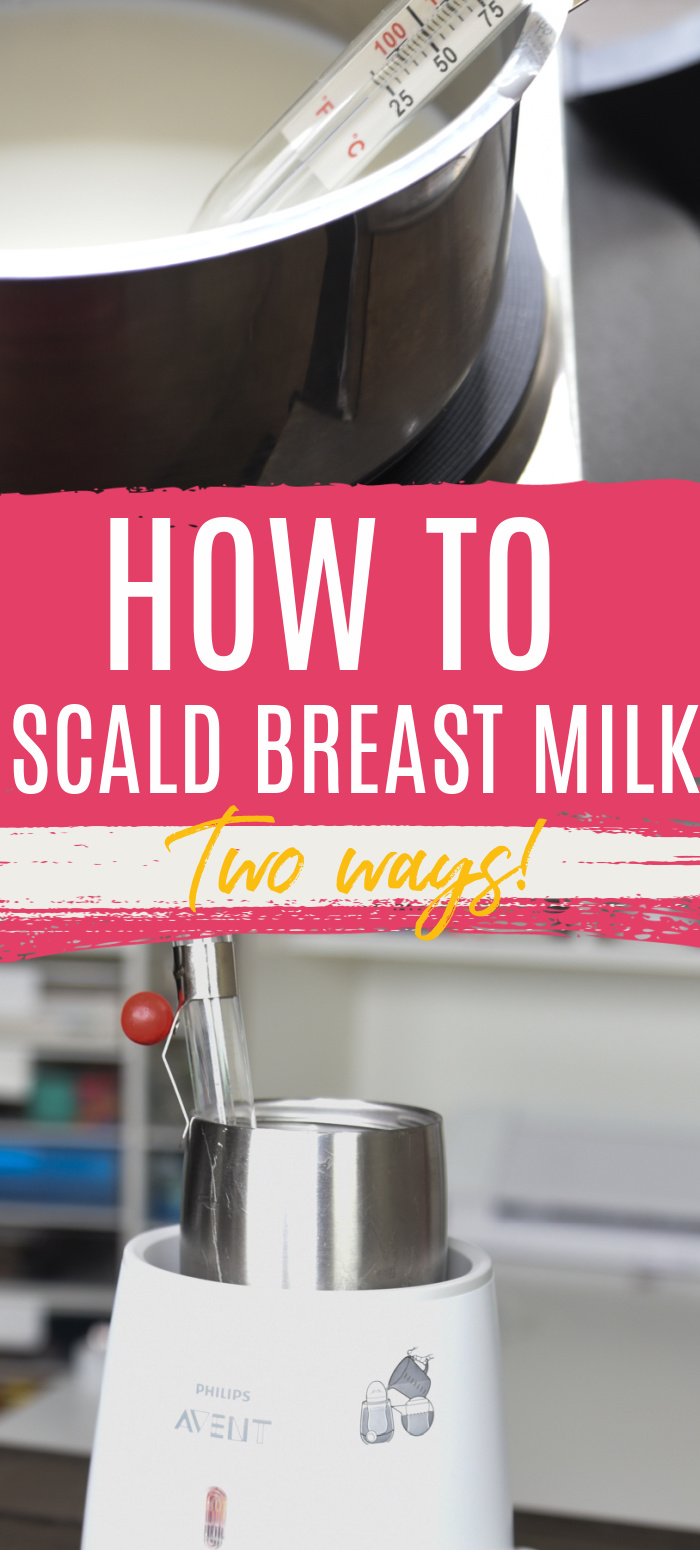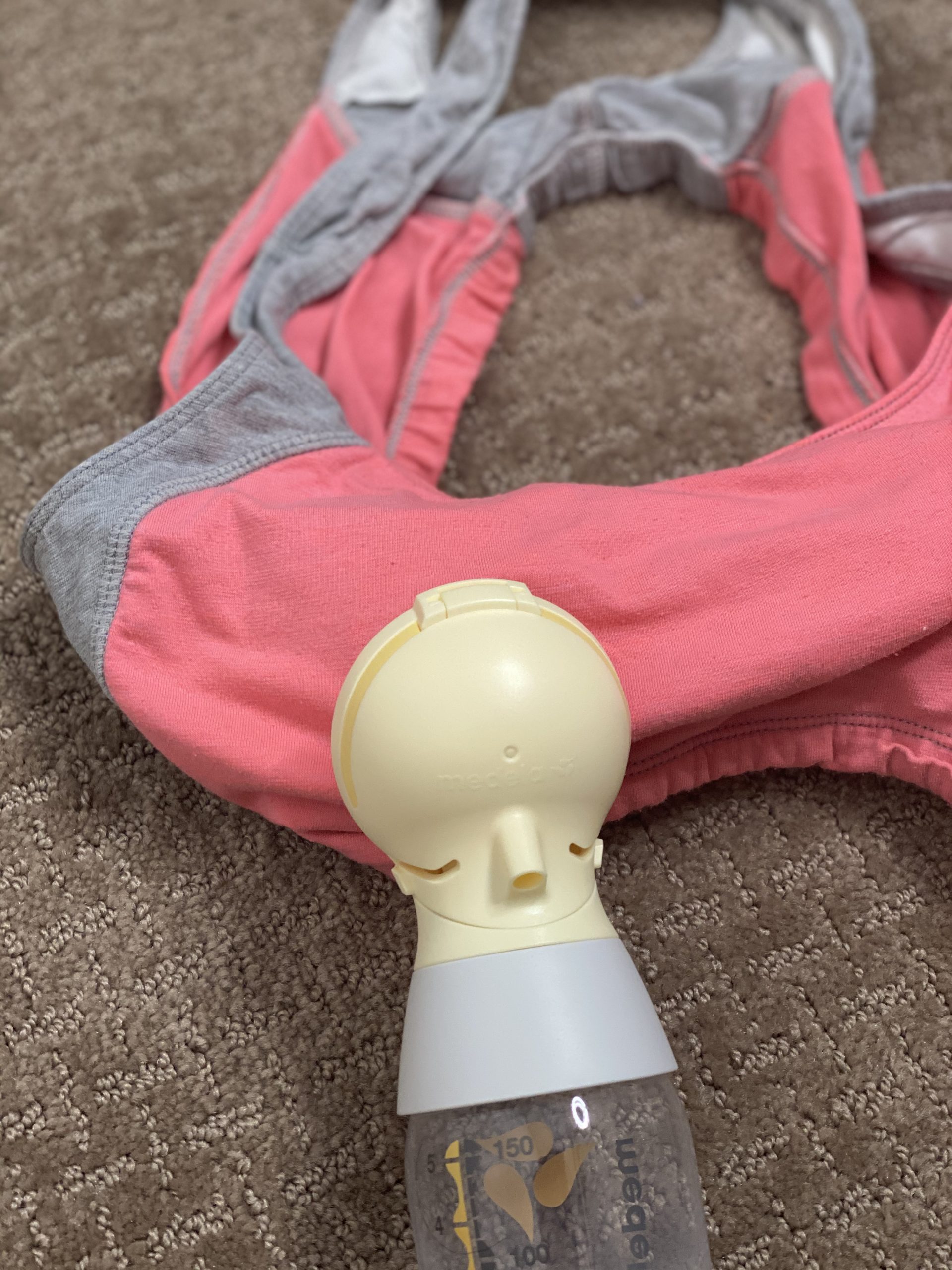Has your baby suddenly stopped wanting to breastfeed? This is such a frustrating situation to be in! In this article, Katie Clark, IBCLC, shares nine possible reasons why your baby won’t breastfeed.

Reasons for a Breastfeeding Strike
Just when you feel like you’ve finally figured out this breastfeeding thing – a nursing strike rears its ugly head.
For many mothers, there comes a time when your sweet little baby – who, perhaps, used to be content to nurse for hours – suddenly wants nothing to do with the breast
This is SO frustrating – but it’s also a very common occurrence. In this article, I will talk about the reasons WHY this might be happening. Figuring out the root cause is always the first step to overcoming it.
Reason #1: Illness – When Nursing Feels Less Comforting
Picture this: your bundle of joy wakes up one fine morning with a stuffy nose, a raspy cough, and a sad droopy face. Naturally, in times of sickness, even the most ardent nursing enthusiasts may become hesitant to feed. Think about it – would you want to eat when your nose is stuffed up and you can hardly breathe?
Your little champ might be struggling to breathe while nursing, leading to frustration and unwillingness to latch. It’s heartbreaking, but it’s essential to be patient, offer lots of cuddles, and keep your baby hydrated with alternative methods like a dropper or a syringe if necessary.
Illnesses that may particularly impact nursing include:
- Anything respiratory (such as RSV)
- Ear infections – I find this to often be the culprit when there is a one-sided refusal
- Sore throats
Pro Tip: If your baby is congested, consider suctioning the child’s nose immediately before nursing. This can help substantially. The NoseFrida is a popular option.
Reason #2: Bottle Preference – Sometimes It’s Easier!
Ah, the allure of a bottle! For some babies, the bottle’s appeal lies in its convenience. It requires less effort and provides instant gratification. Nursing, on the other hand, demands a bit more work for our tiny tots.
But don’t worry – this doesn’t mean the end of your breastfeeding journey. Offering paced bottle feeding with slow-flow nipples and ensuring skin-to-skin contact during feeds can help bridge the gap between the breast and the bottle.
Reason #3: Developmental Leaps – The World is So Exciting!
As your sweet baby grows, so does their curiosity about the vast, intriguing world around them. During developmental leaps, they might be too captivated by their newfound skills to sit still and nurse. It’s like asking a little explorer to pause their expedition and focus on a meal.
During these times, breastfeeding might take a backseat, but it’s temporary. Once your tiny explorer has finished marveling at their newfound abilities, they’ll return to the comforting embrace of nursing.
Pro Tip – Stay ahead of the developmental leaps! I LOVE The Wonder Weeks app. It is based on your baby’s due date and gives you a good idea of when there might be a storm ahead!
Reason #4: Solid Preference
Ah, solids – the introduction to a whole new world! As your baby explores different tastes and textures, they may decide that solids are their new favorite thing.
Remember, it’s a natural part of their development, and breast milk or formula remains their primary source of nutrition until the age of one.
If you are experiencing this, you may want to back off on the solids for a time to ensure the child is getting most of their nutrition from breast milk.
Reason #5: FOMO – Fear of Missing Out on Fun
FOMO (fear of missing out) is real, even for our tiny tots! As they become more aware of their surroundings, they might occasionally choose to join the fun rather than nurse.
Solution? Leave the room and remove distractions!
Reason #6: Letdown Issues
Is your milk slow to letdown? Your baby might get impatient waiting for it. If they feel like it’s not coming out fast enough, they may feel frustrated at the breast.
In this situation, doing compressions while nursing can help a lot.
But perhaps your baby is freaking out because your letdown is too fast! This may also create a negative association with the breast. If this happens, leaning back can help control the flow.
Reason #7: Your Period
Menstrual cycles can really mess nursing up for a time! Periods and ovulation can drop your milk supply, delay your letdown, and even change the taste of your milk.
Reason #8: Pregnancy
Yep – you can get pregnant while breastfeeding. And if your baby is suddenly refusing to nurse and you feel like your supply has dropped, it would be a great time to take a pregnancy test.
Reason #9: Medication
Certain medications can change the taste of your breast milk. If you have recently started taking a medication, and your baby no longer wants to nurse, it may be related.
Of course, talk with your doctor before suddenly discontinuing a medication!
Reason #10: Teething
Teeth and breastfeeding – ah! Nothing strikes more fear in a breastfeeding mother. Teething can cause disruption in nursing due to pain and discomfort. Try and manage that teething pain as much as possible.
And if teething is making YOU not want to breastfeed (due to your little baby piranha biting) be sure to read this article – 6 Reasons Your Breastfed Baby is Biting.
Get Help!
Figuring out the reason behind a nursing strike can be difficult. Working with an IBCLC can make a world of difference and help you think of ideas you hadn’t thought of on your own. I offer virtual consults worldwide – and if you are in the USA, you may be eligible for six free consults. Click here to solve your problem with my help today!
Don’t forget – you’re doing an exceptional job in providing your precious little one with the best nourishment and love possible. Nursing strikes can be perplexing, but armed with understanding and patience, you’ll sail through these challenging moments.







